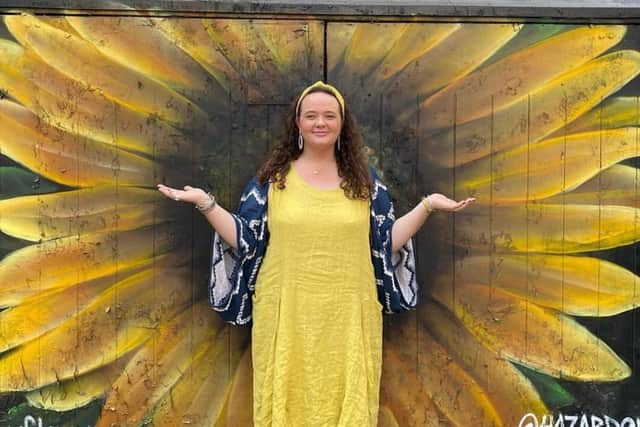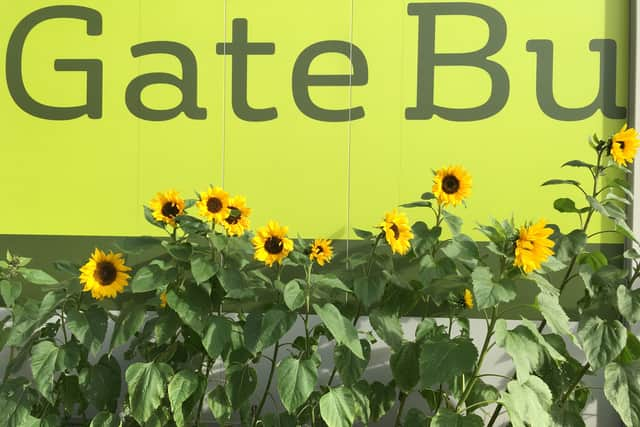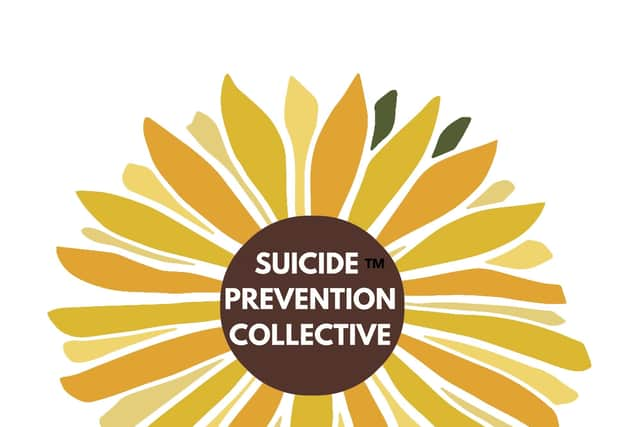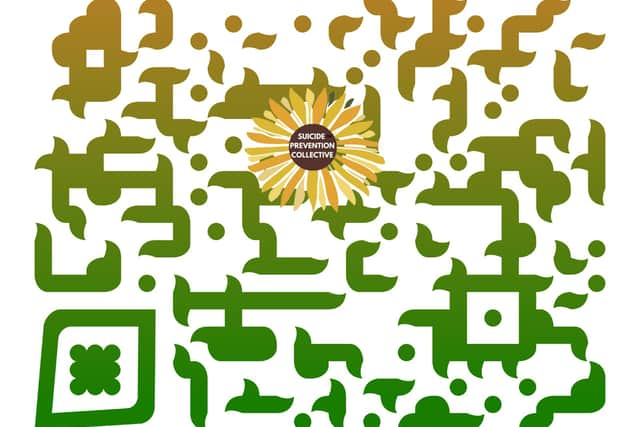Meet the suicide prevention activist transforming Bristol’s mental health landscape one sunflower at a time
This article contains affiliate links. We may earn a small commission on items purchased through this article, but that does not affect our editorial judgement.
and live on Freeview channel 276
A former University of Bristol law student who attempted suicide has recovered to provide a lifeline for others after founding her own suicide prevention collective.
BristolWorld is this week launching a focus on student suicide after FOI requests to the University of Bristol and the University of the West of England revealed that the city lost 19 students to suicide within the past four years.
Advertisement
Hide AdAdvertisement
Hide AdWhile we’re keen to raise awareness of these figures, it’s also important to shine the spotlight on the incredible work being done to support our young people and break down the stigma surrounding mental health.


With this in mind, BristolWorld spoke to Loo Fletcher aka The Sunflower Gal and founder of the Suicide Prevention Collective.
Loo attempted to take her own life in 2018 after finding herself in a ‘a very dark place’ while studying Law at the University of Bristol at the age of 21.
“I went through a very dark time,” she told BristolWorld. “But I’m here and well.”
Advertisement
Hide AdAdvertisement
Hide AdThe experience prompted Loo, now a mental health advocate and suicide prevention activist, to make a difference.
Over the past three years she has set about creating tenable ‘systematic change’ through the power of community, creativity and vulnerability - one sunflower at a time.


The idea came to her while she was sitting in a tea tent.
‘Community is what’s missing’
“I’d had a lot of time to reflect at that point, and I was sat there when I suddenly thought - community is what’s missing,” said Loo.
“Community can be four people, it can be two people. But it’s about creating space in which a person is allowed to feel they belong.”
Advertisement
Hide AdAdvertisement
Hide AdSunflowers have to turn to the light in order to bloom and they grow together in fields, something that has always inspired Loo.
Working with the University of Bristol’s gardens and external estates team, she has created mini sunflower fields dotted around campus, where students have a place to be and reflect while connecting with themselves, others, nature and their home.
“We purposefully plant the sunflowers later, so that they’ll be blooming ready for the start of the academic year,” Loo went on.
“We’ve also put little signs with QR codes in these mini sunflower ‘pockets’ of sunshine, meaning that anyone who visits them can not only connect with themselves but also connect with the collective, and wider Bristol, should they want to.”


Advertisement
Hide AdAdvertisement
Hide AdStudents want to connect with their university community but also with their new city, argues Loo, and a lot of the Collective’s work is geared towards this notion through its workshops, projects and creations.
For example, the collective created public art sunflower pieces at Turbo Island during the lockdowns and last month launched its own mental health radio show, ‘Sunflower Sessions’.
“I think what’s lovely is that people have connected and contributed in different ways,” said Loo.
“So for example we have someone from University of Bristol alumni who did all our videography and QR codes.
Advertisement
Hide AdAdvertisement
Hide Ad“He has a full-time job now and we’re so happy he’s flourishing, but should he want to come back our doors are always open and that goes for everybody.”
‘Turn towards the light, whatever that might be for you’
In fact, Loo’s message for any student who might be desperate for help while reading this is: “You are loved and strong.”


“I've chosen those words because when you're in that dark place, you don't feel loved,” said Loo.
“You don't feel like you deserve love, either from yourself or from others around you whether that be family, your new friends at university or the staff on your course.
Advertisement
Hide AdAdvertisement
Hide Ad“But there is hope. I was a student going through a terrible time once, and I did try to take my own life.
“Through the support and love I had around me, ie. community, I found the light that I couldn’t find within myself.
“Turn towards the light, whatever that might be for you.”
Things ‘absolutely’ can get better said Loo, even when it feels like there’s no hope.
“Mental health is not linear,” she said. “There are times when it is less ‘sunflower’, hence why balance is a massive part of the Collective’s manifesto (hope, humour, curiosity, balance and vulnerability).
Advertisement
Hide AdAdvertisement
Hide Ad“There’s a Scandinavian concept, ‘Lagom’, that I’ve taken a lot from - it means not too little, not too much, but just enough.
“I know my boundaries, I know the work-life balance that I need in order to fill up my cup of compassion in order to give to others.
“I’ve had to learn techniques. I call it a patchwork quilt, different squares representing the things we need to feel mentally well and strong. I’ve been building my quilt for the last three years.”
What’s next for The Sunflower Gal? There are lots of exciting projects on the horizon, but the only thing Loo can tell us is that the Collective could be expanding outside of Bristol and into other areas, while always having its ‘core part’ of the sunflower here in the city.
‘What needs to happen in vulnerability’
Advertisement
Hide AdAdvertisement
Hide AdIn the meantime, there is still a lot of work to do, and Loo is keen to highlight that there’s ‘no set answer’ when it comes to suicide prevention.
“I think that when you're looking for an answer to a crisis, you're going to project what you think the answer should be,” she said.
“It’s important to remember that university is a microscopic view of the social norms of young people. And it's not just young people. ‘Older’ people go to university as mature students.
“What needs to happen is vulnerability. There’s a great quote by Brene Brown: 'Vulnerability is truly the birthplace of creativity, innovation and change'. I really believe that.
Advertisement
Hide AdAdvertisement
Hide Ad“I think if spaces are created on campus that enable people to be vulnerable with themselves, and see other people being vulnerable, that takes away the shame.
“And that is when there will be change in the mental health landscape at universities.”
How to find the Suicide Prevention Collective:
- Linktree: https://linktr.ee/Sunflower_spc_
- Email : [email protected]
Help is available for anyone affected by this issue. You can call the Samaritans for free on 116 123, email them at [email protected], or visit samaritans.org to find your nearest branch.
Comment Guidelines
National World encourages reader discussion on our stories. User feedback, insights and back-and-forth exchanges add a rich layer of context to reporting. Please review our Community Guidelines before commenting.
